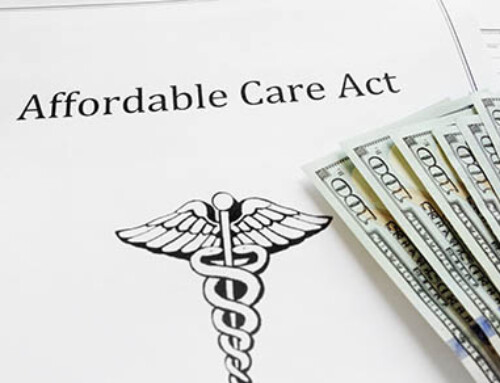
Tax Increases Coming in 2012 under Affordable Care Act
Fast forward to next year and we are looking at a number of important tax increases on the horizon. The tax increases falls under the the Affordable Care Act (the Patient Protection and Affordable Care Act, P.L. 111-148, and the Health Care and Education Reconciliation Act of 2010, P.L. 111-152), and include higher Medicare taxes for high earners, a 3.8% surtax on unearned income of higher-income individuals and caps on FSA contributions. Companies also get to look forward to compliance issues, along with new health insurance deduction limitations and fees.
Increased Medicare tax for high-earning workers and self-employed taxpayers. For the tax year beginning after 2012, an additional 0.9% hospital insurance tax applies to wages and self employment income in excess of $250,000 for joint returns, $125,000 for married filing separately and $200,000 in all other cases.
Surtax on unearned income of higher-income individuals. Starting in 2013, an unearned income Medicare contribution tax is imposed on individuals, estates, and trusts. The tax is 3.8% of the lesser of either (1) net investment income or (2) the excess of modified adjusted gross income over the threshold amount ($250,000 for a joint return or surviving spouse, $125,000 for a married individual filing a separate return, and $200,000 for all others) for an individual.
Higher threshold for deducting medical expenses. For tax payers under the age of 65, unreimbursed medical expenses will be deductible only to the extent they exceed 10% of AGI for the tax year. If over 65, a 7.5% floor applies until 2016.
Dollar cap on health FSA contributions. For tax years after 2012, for a FSA to be a qualified benefit under a cafeteria plan, the max amount available for reimbursement of medical expenses of an employee (and dependents) for a plan year can’t exceed $2,500.
Changes in deductions for retiree prescription drug coverage. Sponsors of qualified retiree prescription drug plans are eligible for subsidy payments. These subsidies are excludable from the taxpayers gross income for regular income tax and alternative minimum tax purposes. Before 2013, as taxpayer may claim a business deduction for covered prescription expenses, but after 2012, the amount allowed will be reduced by the amount of excludable subsidy payments received.
Fees on health plans. For each policy year ending after Sept. 30, 2012, each specified health insurance policy and each applicable self-insured health plan will have to pay a fee equal to the product of $2 ($1 for policy years ending during 2013) multiplied by the average number of lives covered under the policy. The issuer of the self insured sponsor is liable for paying the fee.
$500,000 compensation deduction limit for health insurance issuers for services performed during the year.
A 2.3% excise tax applies on the sales of taxable medical devices. This tax is paid for by the manufacturer, producer or importer and doesn’t apply to items purchased by the general public (contact lenses, hearing aids, eye glasses, etc).






Leave A Comment